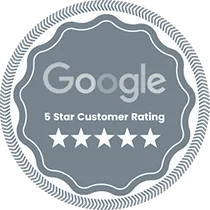As a small business owner, it’s crucial to stand out in the crowded marketplace. One effective way to do this is by implementing schema.org structured data on your website. This powerful tool can not only increase your visibility but also drive more traffic to your site, ultimately resulting in increased sales.
What is Schema.org?
But what exactly is schema.org and how can it benefit your small business? Schema.org is a collection of schemas that webmasters can use to mark up their web pages in a way that can be understood by major search engines. By using schema.org, you can provide search engines with additional information about your business such as your business name, address, phone number, and opening hours. This can help search engines to understand the content of your website and provide users with more relevant and useful search results.
How can it help my business?
One of the main advantages of using schema.org is that it can significantly improve your website’s local SEO. By providing search engines with accurate information about your business location and contact details, you increase the chances of your business appearing in local search results. This can be particularly beneficial for small businesses that rely on local foot traffic. Here are some use cases provided by Google that provide a real-world example of how schema.org can help more people reach your website.
Moreover, schema.org can also help to increase visibility on social media. By including links to your social media profiles in your structured data, you increase the likelihood of your business appearing in social media search results. This can drive more traffic to your site and increase your reach on social media.
Another benefit of using schema.org is that it can improve the way your business is displayed in search results. For example, by using structured data to mark up your business’s name, address, and phone number, you can make it more likely that your business will appear with a map and a “call now” button in search results. This can make it more convenient for users to find your business and contact you, which can ultimately lead to more sales.
In addition, using schema.org can also improve the accessibility of your website. By providing information about the content of the page, it can help users with assistive technologies to understand the page better.
How do I start using Schema.org?
To implement schema.org on your website, you can use one of the several syntaxes such as Microdata, RDFa, or JSON-LD. Once the structured data is added to your pages, it can be used by search engines to understand the meaning of the content on the page and provide users with more relevant search results.
To make the most of schema.org, it’s important to choose the right type of schema for your business and to mark up as much relevant information as possible. This includes not only the basic information such as name, address, and phone number, but also details such as business hours, reviews, and prices.
It’s also important to keep in mind that schema.org is not a silver bullet for SEO, it should be used in conjunction with other SEO best practices such as creating high-quality content, improving website load speed and creating a mobile-friendly website.
In conclusion, schema.org is a valuable tool for small businesses looking to increase visibility, drive more traffic to their site, and ultimately boost sales. By providing search engines with accurate and detailed information about your business, you can improve your website’s local SEO, increase visibility on social media, and improve the way your business is displayed in search results. Don’t forget to validate the structured data on your website to ensure it is error-free and well-formed, you can use the Google’s structured data testing tool for this purpose.


